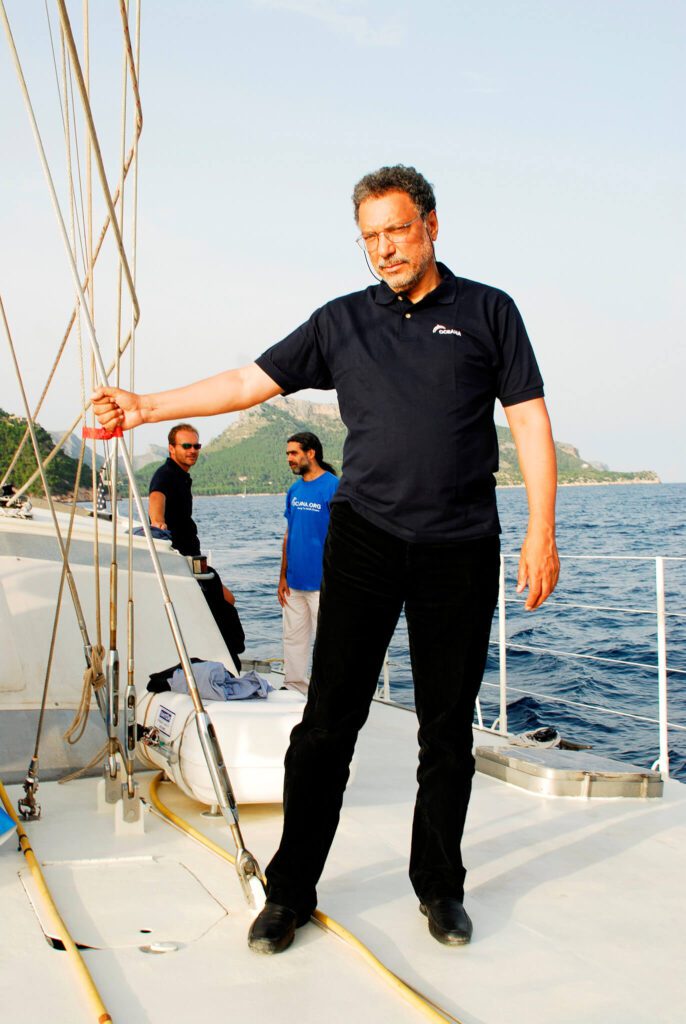January 10, 2025
Dr. Daniel Pauly’s Answers for Ocean Conservation
BY: Andy Sharpless
For more than 10 years, Dr. Daniel Pauly contributed articles for Oceana’s thrice yearly membership magazine. Oceana recently compiled all of these articles into a booklet. The topics of the columns were chosen to address the concerns and questions we knew mattered to Oceana’s supporters whose contributions fund our policy campaigns. These campaigns are now in nine countries and the European Union; places chosen because they carry an outsize impact on the overall health of the global ocean. Oceana’s supporters care deeply about the ocean and want it protected by science-driven policy. They are public spirited people who are not scientists. They want to learn, but as busy people, they need the most important ocean information stated clearly and succinctly.
This is difficult to do well. Accomplished academic ocean experts often find it especially challenging to write for this kind of audience. Many refuse to do it. Their profession rewards writing that presumes a reader with an advanced and sophisticated knowledge of marine science. The scientific language of such writing is often so dense and full of arcane terms that the lay reader — even one with an advanced degree in a field other than marine science — cannot easily make sense of it.

Dr. Pauly is the most cited fisheries scientist in the world whose work has earned him many prestigious awards. His insights and research, published in countless peer-reviewed academic articles, are cited worldwide. Over his lifetime, he has been honored countless times for his fundamental contributions to humanity’s understanding of the changes in the status of our oceans. When you read his articles in this collection, you are reading insights you can trust.
I served as Oceana’s CEO for more than 20 years, retiring at the end of June 2024. Throughout that time, Daniel served as a member of our Board of Directors, attending all but two of our nearly 70 meetings. In that time, as Oceana’s board chose what our policy campaigners would seek to accomplish, and which countries we would fight in, Daniel steadily and gently taught our board the science they needed to correctly make these fundamental strategic choices. We now have more than 300 policy wins that cut overfishing, conserve habitat, stop pollution, protect endangered species, and require the transparency essential to honest and effective ocean management. Every single one of those victories was informed by Daniel’s expertise and advice.
Science-driven policymaking requires scientists willing to communicate with regulators and lawmakers on the “operational” questions that drive the difference between ocean depletion and abundance. Sadly, many academic scientists do not help with this task. Their career incentives often reward so-called ‘pure’ science, not the sort of applied science that a policymaker desperately needs. Even worse, some institutions treat association with practical policymaking as evidence of a lack of commitment to precision or scientific independence. This is a great disservice to the world. An academic expert whose insights help to restore and protect an abundant and biodiverse ocean is worthy of the highest level of respect and commendation (and career advancement). Precise academic measurements of a dying ocean are not more valuable than science-based insights that drive conservation policymaking that restores abundance.
To state it metaphorically, the world needs more practicing ocean conservation doctors, not more forensic marine autopsy technicians. We need careful, science-based diagnoses of the causes of ocean decline, coupled with clear recommendations on the policies that would restore marine abundance and health. Informed by that expert advice, advocates like those of us at Oceana, in partnership with small-scale fishers, coastal communities, and our many allies can campaign to push the policymakers to stand up to the overfishers and the polluters.
Globally significant improvement in the status of our ocean is essential, even if you just care about feeding a hungry humanity. The very good news is that rebuilding ocean abundance is a practical mission. Thanks in part to Dr. Daniel Pauly’s leadership with us at Oceana, we’ve proven that. Ocean conservation, delivered country by country, is achievable. We hope this collection will inspire other distinguished marine scientists to find ways to share their insights in language and in fora that assist policymakers and marine advocates in saving the ocean and helping to feed the world.



